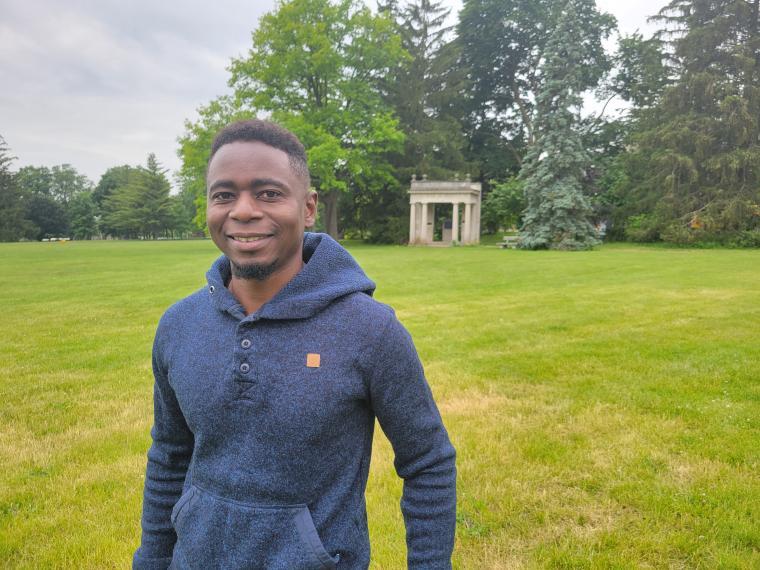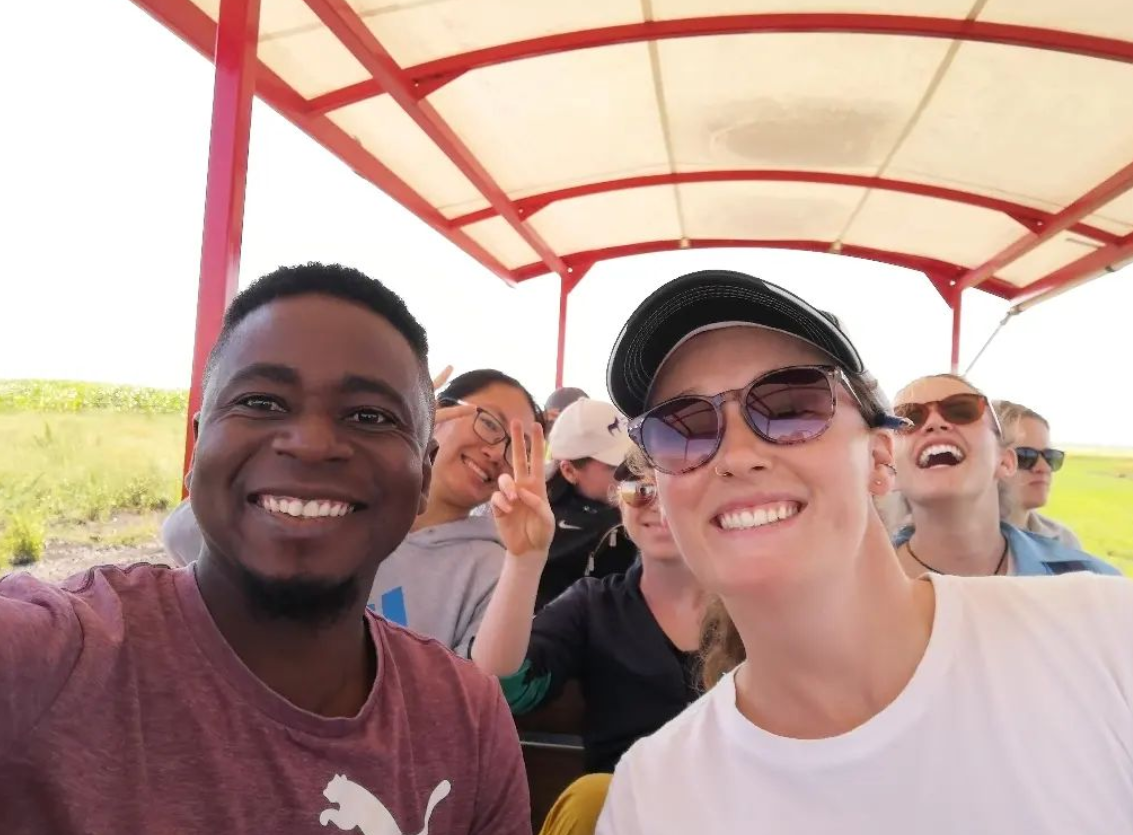Student Q&A: Spreading the news about the importance of soil health

Originally from Zimbabwe, MSc student Takudzwanashe Mundenga (Taku) is a recent recipient of the NSERC-CREATE Climate Smart Soils Scholarship, which addresses the need for training highly qualified personnel to sustainably lead Canada’s agri-food sector. Taku is also an accomplished journalist and contributes to a weekly column in Newsday Zimbabwe, raising awareness about soil health and climate change.
In this article he shares his experiences in OAC's MSc Capacity Development and Extension program and living in Canada.
Why did you chose U of G for your master’s?
After completing my undergraduate degree in Zimbabwe, I worked as a political journalist for over five years. Although I gained valuable experience and expanded my network considerably, as a government critic in a politically volatile and pseudo-democratic environment, I was subjected to numerous threats and state-sponsored violence, forcing me to leave the country abruptly and seek refuge in neighbouring countries for almost a year. Finding a safe place to go during the pandemic was difficult, but my friends in Canada recommended that I apply to various universities in Ontario. There were a few reasons for my decision to attend U of Guelph. First and foremost, the tuition at the University of Guelph was quite affordable. Secondly, the program I wanted to study was unique and offered the expertise I sought. And finally, the Ontario Agricultural College's reputation was impressive and solidified my decision to enroll at the University of Guelph.
What is the focus of your research?
My research focuses on the role of media as a stakeholder in soil health-related climate change mitigation. The media has traditionally shaped perceptions and raised awareness around climate issues – a feat which has led to milestone developments that contributed to the creation of the Intergovernmental Panel on Climate Change (IPCC). The mass media promotes public understanding of climate change and its harmful impacts on lives, livelihoods, and biodiversity. Despite the media successfully pointing out the climate change crisis, there is also a need to seek and provide solutions. Therefore, my research examines the media’s position in engaging, informing, and supporting farming communities about the connection between soil health, carbon capture, and climate change mitigation.
How does your background in communications and journalism influence your research?
My interest in climate change communication led me to explore research opportunities related to this area. My supervisor, Dr. Helen Hambly, urged me to apply for the NSERC-CREATE Climate Smart Soils scholarship (an award of approx. $20,000 per annum). This program was the first multi-institutional soil-centered program to address the need for highly qualified personnel training to sustainably lead Canada's agri-food sector. Dr. Hambly believed I could bring a social sciences and international perspective to the program.
While it was initially challenging to wrap my head around the scientific jargon in the program, my agricultural background, coming from a family that farms on a small scale, motivated me to push forward with my master's research thesis on the role of media as a stakeholder in soil health-related climate mitigation. I eventually fell in love with soil science communication, which resulted in my research becoming composite, integrating media studies, soil science and climate change science.

As an international student, how did you find adjusting to Canada?
Although the winter weather was tough to get used to, I was eventually able to tough it out. Nowadays, I enjoy the snow, and I have no problems with winter. The snow is beautiful, and I can't wait to go tobogganing again! As an international student, adapting to Canada took some time, but with an open mind, it's been a great experience.
There was a learning curve in adapting to the North American agricultural language, including units of measurement and terms for specific crops and practices. Even the word "soil," commonly known as "dirt," took some time. Learning Imperial System measurements like pounds (lb.) and bushels was something I had to get used to.
What is a piece of advice for a student interested in pursuing a master's degree at U of G and OAC?
Be proactive and take advantage of the many resources available. Firstly, start looking into possible research topics and potential supervisors early on, considering that these aspects significantly impact the success of your graduate studies. Don't be afraid to seek assistance or guidance from faculty or current students in your desired program. Moreover, familiarize yourself with the resources available to help support your academic pursuits, such as academic services, scholarships, and research funding opportunities.
I also advise students to develop practical skills in critical thinking, communication, and time management to help them overcome the challenges of graduate-level coursework. You can also join clubs or organizations related to your field and attend seminars and conferences to network and enhance your knowledge base. Lastly, balance your academic pursuits with self-care practices, such as exercise and spending time with friends and family, to avoid burnout. Pursuing a master's can be intense and stressful but maintaining a healthy life balance will positively impact your academic performance.